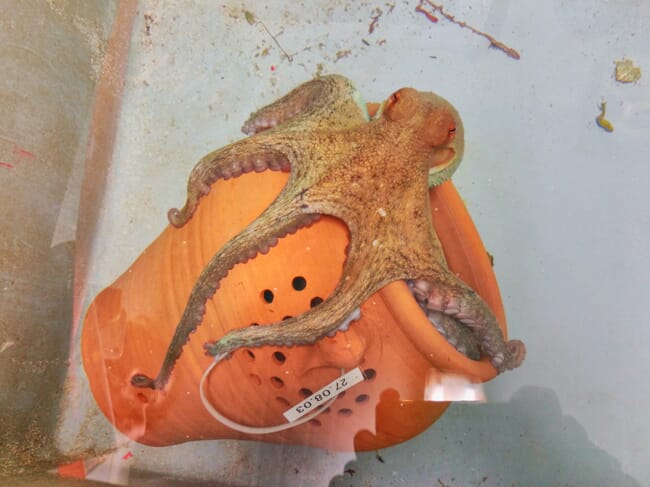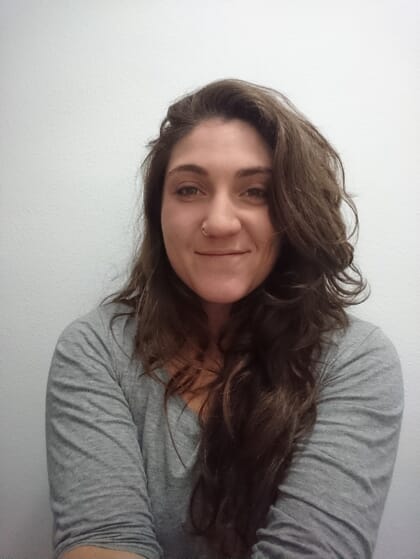Although it’s been a controversial subject of late, there’s no doubt that growing demand for octopus, combined with improved farming techniques, is making cephalopod farming increasingly attractive from an economic perspective.

© Tania Rodriguez Gonzalez
For those living in the Mediterranean and across Asia, octopus has been a regular feature on their seafood menu for many years. More recently, it has gained popularity in other parts of the world – so much so that demand has at times outstripped supply.
Generally, octopuses grow fast, die after a few years, produce lots of offspring in the middle and fetch a good price on the market. For an aquaculturalist, it seems like an ideal species, and it is perhaps of no surprise that in countries such as Spain, where cephalopod consumption stands at around 3.2kg per capita compared to the global average of 0.51kg per capita, studies into octopus aquaculture started back in the 1980s. However, there have been – and continue to be – many challenges, ranging from barriers to breeding octopus to difficulties in ensuring they survive to adulthood.
Currently most octopus production involves growing wild-caught juvenile octopus in cages where they are fed until they reach marketable size. However, octopus ranching is labour intensive and, together with high variability in initial octopus catches from one season to the next, it is unsurprising that this form of farming hasn’t reached any sizable scale. Nevertheless, research into full life-cycle octopus aquaculture has continued steadily – and seen a number of successes in recent years.
After hatching from their eggs, most octopus species live in the water column, away from the seabed, in what is known as the paralarval phase of their life. At first, octopus rely on their own energy reserves but once these are depleted, paralarvae switch to zooplankton. Historically, ensuring survival past this life stage was a major bottleneck, with feed-related issues being a major factor behind the high rates of mortality. In some respects, this was resolved almost 20 years ago when researchers at the Spanish Institute of Oceanography (IEO) successfully reared octopus past the paralarval stage. There is a catch – the feed consists of living crustacean larvae and brine shrimp, which may become increasingly difficult to obtain in sufficient quantities for commercial production as demand grows. To solve this problem, researchers are now working on developing optimal feed for paralarvae. In fact, suitable feed for the entire life cycle of octopus remains one of the biggest bottlenecks for commercial-scale production.

© Tania Rodriguez Gonzalez
Once wild octopus settle on the sea floor, they consume crustaceans, fish and molluscs. Just as with paralarvae, feeding live prey to juvenile and adult octopus is not feasible for large-scale production so an artificial feed is needed. “The biggest challenge is obtaining similar or better performances in growth rates and feed efficiency with artificial feeds than those obtained with a natural feed,” explains Tania Rodríguez González, a PhD researcher at the Marine Aquaculture Pilot Station of the Instituto Murciano de Investigación y Desarrollo Agrario y Alimentario (IMIDA).
Enhancing the feed and altering the type and quantities of the various elements that go into feed specifically for octopus is the basis of González’s research.
“The developed feeds tested in our trials were made with freeze-dried raw materials, pure ingredients, gelatin as a binder and water,” González explains. “We obtained elevated survival and growth rates – similar to those obtained with natural prey, with good conversion and feed efficiency.”
Whilst full life-cycle octopus commercial aquaculture might have become technically feasible, there is one question that is yet to be answered: should we have octopus aquaculture at all?
A number of concerns have been raised on environmental grounds – particularly in relation to octopuses’ carnivorous lifestyle. “We have to go out and fish to feed these animals. That just doesn't make sense in the 21st century,” says Dr Jennifer Jacquet, associate professor at New York University. Indeed, concerns surrounding pressure on wild animals for aquaculture feed in general have been a dominant issue for a number of years. Developments are being made to replace wild-caught fish in salmon feed with agriculture and fishery by-products, insects and – arguably the most sustainable of all – food made from plants. Even if it does become possible to feed carnivorous animals with plants, Jacquet questions its efficacy: “Why do we insist on them going plant-based, but not us?”
Sustainable feed is an issue González is also keen to see addressed. She believes that recent research developments can act as a springboard for more environmentally sustainable feeds.
“I consider that the actual formulation of a semi-moist feed, which [has] provided comparable performance to natural diets, should be considered as the starting point to focus research on the replacement of alternative ingredients, with the aim of reducing animal sources,” González says.

Feed isn’t the only issue for octopus aquaculture that has been raised, however. Octopus are famous for exhibiting a level of behavioural and cognitive complexity that is not seen in other aquaculture species. “If we put any animals under mass production in captivity, they should be suited to that life to begin with. That’s not octopus for all sorts of reasons. They’re curious. They’re expressive. They have personalities. They’re cognitively exceptional among the invertebrates,” argues Jacquet. What’s more, unlike other aquaculture species, octopus are solitary animals. If kept in closed containment they will eventually fight, often to the death, and often with the victor eating the defeated.
Indeed Jacquet recently co-authored a paper on the subject. In “The case against octopus farming”, published in Issues in Science and Technology, Jacquet, alongside Professors Becca Franks and Peter Godfrey-Smith and Dr Walter Sánchez-Suárez, argue that “octopuses are particularly ill-suited to a life in captivity and mass-production, for reasons both ethical and ecological”.
Whilst much of the conversation surrounding welfare in aquaculture focuses on stocking densities, disease and parasite control and slaughter, Jacquet argues that octopus need more consideration, including, at minimum, enrichment in their enclosures. “How they live their life seems almost more important to me than the question of ethical slaughter, for instance,” she says. Jacquet believes that rather than focusing on species like octopus, aquaculture should concentrate on species such as bivalves, which, she says, are much more suited to an aquaculture setting – and have lower environmental impacts when farmed.
Despite such concerns, octopus aquaculture looks set to continue to develop. In 2017 Japan-based marine-resources company Nippon Suisan Kaisha announced the successful hatching of 140,000 octopus, all conceived from artificial incubation, with commercial sales to Japanese retailers due to start by next year. For some, such technological achievements raise broader questions surrounding the continued development of aquaculture – what do we want aquaculture to look like, and what do we need to do to get there?
Thumbnail credit: Tania Rodriguez Gonzalez


